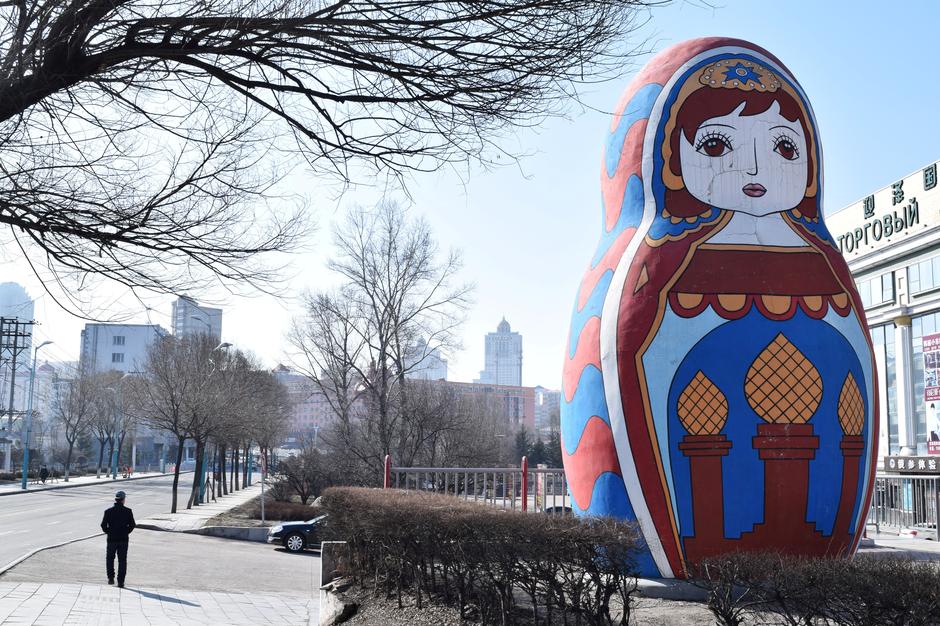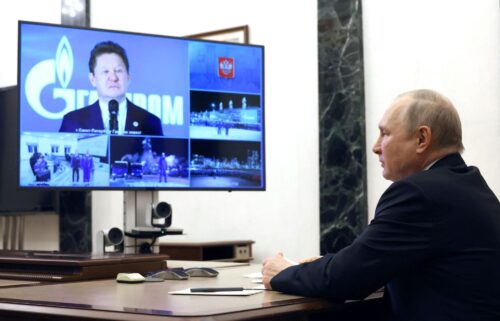‘Morally condemnable’: China’s ambassador to Russia scolds Chinese returnees

Photo by Huizhong Wu / Reuters
Chinese nationals in Russia are swarming to the Heilongjiang border amid Russia’s rising number of COVID-19 cases, but they’ve been discouraged from crossing back to China by an unlikely source: China’s ambassador to Russia.
“There are some Chinese people who, by some means, broke through the border to return to China. In fact, they brought the virus back. This is morally condemnable,” Zhāng Hànhuī 张汉晖, China’s ambassador to Russia and the former vice minister at the Ministry of Foreign Affairs, said on April 17 during a video conference with Chinese expatriates in Russia. The video was live-streamed on social media by China’s state broadcaster CCTV.
Chinese ambassador to Russia telling Chinese citizens to take care of themselves there and give up hope of returning to China until the pandemic is over. This comes amid increase of imported cases at CN-Russia border pic.twitter.com/E2gXkWAtDl
— Alice Su 蘇奕安 (@aliceysu) April 19, 2020
According to Zhang, many Chinese citizens have falsely claimed that Russia is no longer allowing them to stay and that they have no other options. “This kind of practice is truly despicable,” he said. “You’re enjoying the food of Sino-Russian cooperation while smashing the pot of Sino-Russian relations. This has crossed the bottom line of morality.”
As China has largely contained domestic COVID-19 infections, it’s made preventing imported cases the nation’s top priority. Suifenhe, a port city in Heilongjiang Province on the Sino-Russian frontier, has recently seen a surge in imported cases — 243 cases have been found among returning citizens as of April 13, when China temporarily shut the Suifenhe-Pogranichny border. Despite the closure, some citizens still attempted to cross, according to the Chinese consulate in Vladivostok.
The land border will not reopen to travelers “until the epidemic ends completely,” Zhang said. “For the Chinese citizens stranded in the Russian Far East, they need to be quarantined locally while arranging their own lives and preparing to live there until the end of the pandemic.”
Over recent years, the repatriation of citizens amid crises abroad has become a major theme in Chinese nationalist films and propaganda. The Chinese action film Wolf Warrior 2, for example, features the story of a retired People’s Liberation Army soldier helping rescue Chinese nationals from an unnamed African country in turmoil. The ending scene shows a Chinese passport cover with these words: “No matter what kind of danger you encounter overseas, please remember that there is a strong motherland behind you.” (These words do not appear on actual passports.)
But as China closes its borders, encouraging its citizens not to return home, the fantasy in Wolf Warrior has been revealed to be just that: a fantasy. After China closed its borders to foreign citizens last month, its aviation authorities capped the number of inbound flights, permitting each airline company to only operate one flight per destination country per week — which effectively forced many overseas citizens to cancel their travel plans. Some of those who had successfully made it back were reprimanded on social media for potentially impeding the country’s collective effort against the virus.
Although Chinese missions in the U.S. and Europe have arranged charter flights to repatriate underaged citizens while distributing protective gear to others, repatriation of all Chinese would have been unrealistic considering the number of PRC citizens abroad.
Admittedly, returning to China via Suifenhe is risky, partly due to the lack of medical resources in Russia’s Primorsky Krai. While the Russian Far East hasn’t seen a major outbreak, many returning Chinese citizens flew into the region from western cities such as Moscow and St. Petersburg, which have been hit hard by COVID-19, and where international flights to Chinese cities have been curtailed. It is likely that many Chinese were infected on their journey to the border, as public health professionals usually recommend seeking shelter locally and avoiding travel.
Either way, many in China were incensed by Zhang’s remarks and his aggressive tone — which they found irresponsible and disappointing. “At first, China did well in the fight against the coronavirus, and won the recognition of the people,” according to one popular WeChat article, published under the name Wulingke. (The original piece has been censored, but it’s archived on China Digital Times.) “But Ambassador Zhang’s remarks were really staggering. Even if there’s a high pressure of preventing imported cases on the Sino-Russian border, he shouldn’t blame his countrymen like this.”
“Facing an outbreak in Russia, it is understandable for normal people to return to China,” the article continued. “As a big and powerful nation that is responsible for its citizens, [China] should not have turned them away.”





